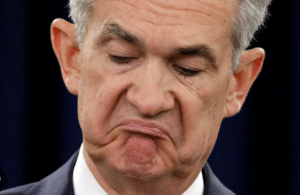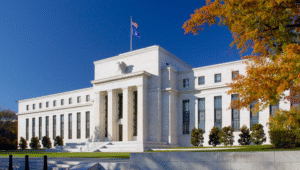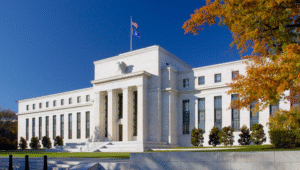$SPY $BTC $GLD
#BudgetDeficit #FiscalPolicy #Economy #Macroeconomics #DebtCrisis #Treasury #InterestRates #Inflation #USMarkets #Crypto #Gold #EconomicOutlook
The U.S. government reported a budget deficit of $366.8 billion for November, a 17% rise compared to the same month in 2023. This significant increase contributes to the mounting fiscal pressure facing the world’s largest economy, with the cumulative deficit for fiscal 2025 now 64% higher than the comparable period last year. The spike reflects widening disparities between government spending and revenue collection, driven by macroeconomic factors, debt servicing costs, and expansive fiscal stimulus measures still reverberating through the economy. Key contributors include elevated interest payments on U.S. Treasury debt, up substantially due to higher interest rates, as well as persistent federal spending on entitlement programs and defense.
The swelling deficit has immediate implications for financial markets. U.S. Treasuries, already under pressure due to elevated yields, may face further volatility as investors adjust their expectations for debt issuance to fund the gap. The rise in yields could ripple through risk-sensitive markets, including equities and cryptocurrencies. For instance, $SPY, a key ETF tracking the S&P 500, may encounter headwinds as elevated borrowing costs weigh on corporate profitability. Conversely, safe-haven assets like $GLD and $BTC could see inflows amidst concerns over long-term fiscal sustainability and potential political impasses over debt ceiling negotiations in 2025.
From a macroeconomic perspective, the rising deficit adds to the challenges facing the Federal Reserve as it carefully navigates monetary policy. The Fed continues to balance controlling inflation with maintaining economic growth, and a growing deficit could complicate its mandate. Higher government borrowing may crowd out private capital, leading to subdued business investment and slower GDP growth. Additionally, the deficit raises concerns about inflationary pressures, as persistent fiscal spending could exacerbate pricing dynamics in an economy already grappling with elevated inflation. Market participants are watching closely to determine whether the government will address the fiscal gap through reduced spending, increased taxation, or a combination of both.
The budget deficit also poses broader political and social implications. With election cycles looming, fiscal policy is likely to be a contentious issue as lawmakers debate solutions to curb the growing shortfall. Protracted political stalemates could undermine investor confidence and trigger market instability, particularly if debt ceiling negotiations turn acrimonious. Persistent deficits also raise questions about the sustainability of U.S. debt levels and the dollar’s status as the world’s reserve currency. While the dollar remains robust for now, deeper structural imbalances could erode its long-term appeal and create new opportunities for alternative assets such as cryptocurrencies and gold.











Comments are closed.